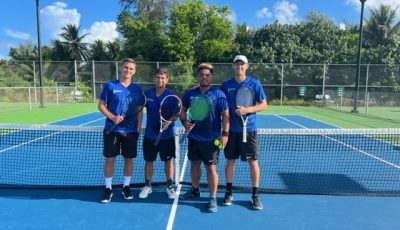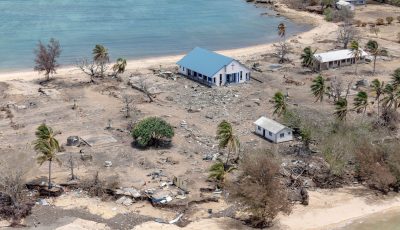PISSED
Carolinian Lino Olopai publicly used the word at the way the bones of “his ancestors” excavated from the BSI resort hotel was handled, at a public meeting in the Multi-Purpose Center when ancestral bones were on display and an archaeologist was present to offer handling details.
The looking-down on the darker skinned Carolinian by the fairer-skinned Chamorro pointed to bones with betel stains as belonging to Carolinians, for Chamorro did not chew the nut, it was claimed. The excavated bones are stained, but now, they are Chamorros. Mr. Olopai has reasons to be pissed.
“Pissed” is not a Refaluwasch word but for elder Olopai, it might as well be. “I am tired of being put down and ignored over such serious matters as ancestral bones that need to be handled with respect in accompanying traditional rites and rituals,” he said. The daily papers carried his more polite pronouncements.
BSI lawyer Viola Alepuyo assured the audience that the necessary rites and rituals were observed as soon as the bones were discovered and recovered.
To piss is but a mere physiological function, but being pissed carries emotive content that can be as casual as just being irritated, to the convulsive response that grates at the bottom of one’s internal being. Knowing Lino and his normal polite demeanor, it would take a lot to drive him to the extreme intensity on the other end of irritation.
But let us leave Mr. Olopai’s emotions behind for a moment, and concentrate on the historic distinction between Carolinian and Chamorro that might affect the matter of bones in known burial grounds in Garapan, home to Refaluwasch navigators who tended to be coastal as the Chamorros tended to farm inland.
That ethnic division is really not necessary, as we claimed in an earlier article, as all of us on island are at one time or another, visitors to the land. While indigene has legal connotations particularly in relationship to real estate, the Carolinians relied more on ancestral and communal usage compared to the Torrens-titled Chamorros schooled in Hispanic ways. Carolinian defines ancestral land relationship on usage, the Chamorro, on ownership; public lands entailed a claimant’s rights that make ownership of high premium more than mere use. Even if it is not used, if owned, it entails rights.
We observed the relationship to land in places like Samoa and Tonga where communal ownership was held in trust by the assigned and respected sector of the population, perhaps, a paradigm to the Carolinian way of relating to land.
On the other hand, when we saw the open communal houses in Tonga and Western Samoa, we were made clear that ownership took a back seat to use. In fact, in terms of the orchard in the yard, equally true in my brother’s former residence near Diamond Head in Oahu, the fruits were for anyone to pluck for consumption, and no one raised a voice of complaint.
Chamorros as children of the 20th and 21st century look at an artifact of the past to be objectively and rationally catalogued, categorized and codified, while Carolinians want it enshrined with accompanied chants and songs. There is no conflict here, just a difference in emphasis and method. One need not be considered disrespectful for being too rational, nor one be thought of as too superstitious for being a stickler about rites and rituals.
Mayhap, BSI need to have an archaeologist and a shaman confer first, share wisdom of each other’s perspective and join together in the same panel before displaying the excavated remnants to the public. Solely taking the objective and rational view is insufficient as many still live out of a universe unfamiliar with Robocops and the Iron Man.
Which leads me back to the emotional outburst of elder Olopai. One only needs to visit the “Lino Olopai Park” to understand. Hedged between a residence of Russian visitors and a predominantly Korean high rise, the later in a federally “subsidized” low-income dwelling, it is a traditional sea front. He keeps his catamaran and single-hulled proa outrigger in the yard under the dangerously towering pine trees, and you know of someone guarding the navigational customs of tradition and nursing the memory of ancestry and progeny.
His comments on the lifestyle that overwhelms the environment of his familiar leaving him pissed are not easily dismissible. When ignored, it may very well be a hard rock in the middle of the road, understandable but not necessarily justifiable.
The allure of gambling to the Chinese is not as strong in the northeast as it is among the Cantonese of Macau and the mahjong tiles on velvety Kowloon tables. We turned our visitors’ industry into the roll of the dice in spite of the “No” referenda sentiments. The economic dependence on casinos is questionable. Our CNMI government officials are finally noticing that economic development is awash with get-rich-quick investments making a few rich, but leaving the masses short on public service. Lino is not the only one pissed.



























